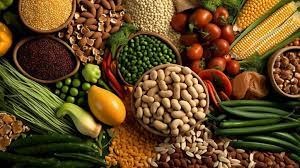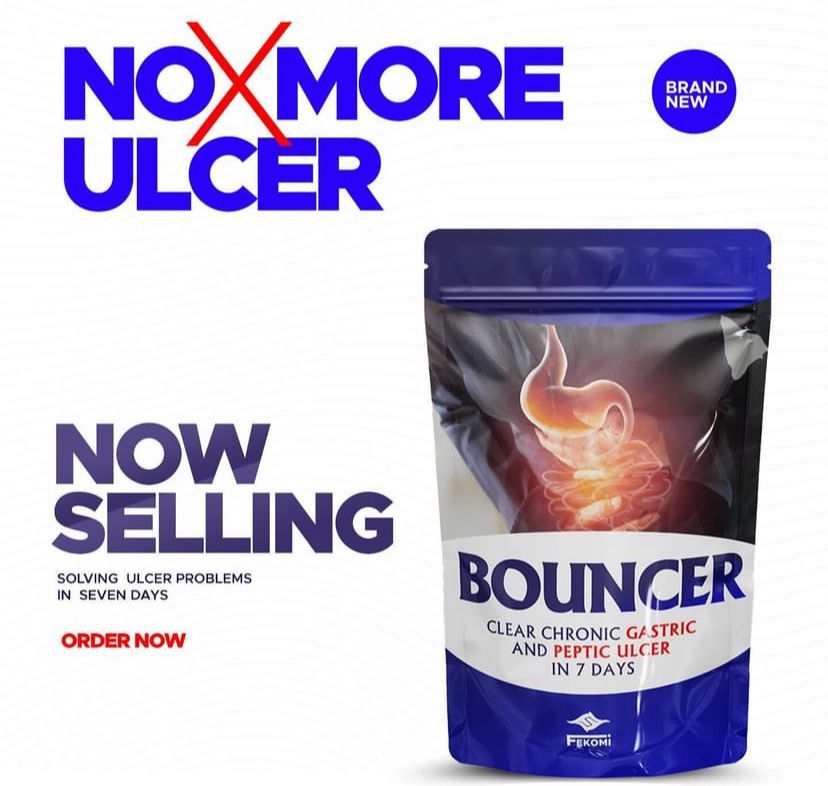Subtotal: ₦53,000.00
Natural Food Supplements For Men Above 30
Food supplements are products that contain concentrated nutrients, such as vitamins, minerals, or other substances that are found in food. Some food items are more concentrated with these needed nutrients than others.
Food supplements are intended to supplement a healthy diet and should not be used as a replacement for eating a varied and balanced diet. In fact, there’s no substitute for eating a wide variety of foods, as each food has a unique nutritional profile. So, whole food supplements can be helpful in some cases, it’s important to remember that they’re not regulated in the same way as medications. In other words, they’re not subject to the same safety and effectiveness standards as medications. So, it’s important to do your research and choose high-quality supplements from reputable sources. And of course, always talk to your doctor or a registered dietitian before taking any new supplements.

The following are some of the food supplements that men should include in their diets.
Vitamin C
Vitamin C is an essential nutrient that is important for overall health. It’s involved in a number of processes in the body, including immune system function and collagen production. Vitamin C can also act as an antioxidant, helping to neutralize free radicals that can damage cells. It’s typically found in citrus fruits, bell peppers, tomatoes, and many other foods. There’s some evidence that vitamin C may help to reduce the risk of certain diseases.
Vitamin B12
Vitamin B12 is important for proper nerve function, red blood cell production, and DNA synthesis. It’s typically found in animal-based foods, such as meat, eggs, and dairy. It’s also available as a supplement, and some fortified foods, like breakfast cereals, contain it. There’s evidence that vitamin B12 may help to reduce the risk of anemia, as well as some other conditions.
Vitamin E
Vitamin E is an antioxidant that may help protect cells from damage caused by free radicals. It’s also involved in immune system function, blood clotting, and other important processes in the body. It’s found in foods like nuts, seeds, vegetable oils, and green leafy vegetables. Vitamin E may help to protect against certain diseases.
Vitamin B6
Vitamin B6 is essential for the function of over 100 enzymes in the body, including those involved in energy production, metabolism, and neurotransmitter synthesis. It’s found in foods like poultry, fish, and starchy vegetables, and it’s also available as a supplement. There’s some evidence that vitamin B6 may help to reduce the risk of heart disease, diabetes, and other conditions.
Read also Foods That Can Boost Sperm Quality
Vitamin B1
This is also known as thiamine. Vitamin B1 is involved in carbohydrate metabolism and nerve function. It’s found in foods like whole grains, legumes, and pork. There’s some evidence that vitamin B1 may help to reduce the risk of certain conditions.
Vitamin B5
This is also called pantothenic acid, and is involved in the production of energy and some hormones. It’s found in a variety of foods, including meat, fish, and dairy products. Some studies have shown that vitamin B5 may have certain health benefits.

Vitamin A
Vitamin A is important for vision, immune function, and healthy skin. It’s found in foods like liver, sweet potatoes, and carrots. Vitamin A is known to be important for overall health.
Vitamin K2
Vitamin K2, also called menaquinone, is a lesser-known vitamin that’s involved in blood clotting and calcium metabolism. It’s found in animal-based foods, including cheese, eggs, and meat, as well as some fermented foods. There’s some evidence that vitamin K2 may have benefits for bone and heart health.
Omega-3 fatty acids
are a type of polyunsaturated fat that are known to be important for brain and heart health. The best sources of omega-3s include fish, such as salmon, tuna, and sardines. There’s some evidence that omega-3s may help to reduce the risk of heart disease and improve mental health.
Protein
Protein is made up of amino acids, which are the building blocks of muscle. There are two types of amino acids – essential and non-essential. Essential amino acids are not produced by the body and must be obtained through diet. Non-essential amino acids can be produced by the body, but it’s still important to get them from food to ensure you’re getting the right balance of amino acids. Protein can be found in a variety of foods, including meat, fish, eggs, and dairy products. Protein is especially important for men who are trying to build muscle or maintain a healthy body weight.
Vitamin D
As mentioned before, vitamin D is important for bone health, as it helps the body absorb calcium. It also has other benefits, such as supporting immune function and reducing inflammation. The best way to get vitamin D is through sun exposure, but it can also be found in some foods, like salmon, mushrooms, and fortified dairy products. Many people also take vitamin D supplements to ensure they’re getting enough.
Vitamin D is a fat-soluble vitamin, which means it’s best absorbed when consumed with fat. So if you’re taking a supplement, it’s best to take it with a meal that contains some fat. Foods that are high in fat and vitamin D include salmon, egg yolks, and fortified dairy products. That’s great! Another good way to get vitamin D is through safe sun exposure. When your skin is exposed to sunlight, it produces vitamin D3, which is the active form of vitamin D. However, it’s important to balance getting enough vitamin D with protecting your skin from sun damage. So if you’re spending time in the sun, be sure to wear sunscreen and avoid getting burned.
Selenium
Selenium is a mineral that’s important for thyroid function, DNA synthesis, prostate health, and immune function. The best dietary sources of selenium include seafood, organ meats, and Brazil nuts. Some research suggests that selenium may help to reduce the risk of certain cancers.
Zinc
Zinc is an essential mineral that’s involved in a variety of processes in the body, including immune function, wound healing, and DNA synthesis. Zinc is found in foods like oysters, beef, and poultry, as well as some plant-based sources, such as legumes and pumpkin seeds. There’s some research that suggests that zinc may have benefits for skin health and wound healing.
Coenzyme Q10, or CoQ10
This is an antioxidant that helps to protect cells from damage and plays a role in energy production. CoQ10 is found in small amounts in foods like fish, meat, and nuts, but the amount in these foods is often not enough to meet the recommended daily intake. CoQ10 supplements are also available, and they’re often used for their purported benefits for heart health, neurological disorders, and skin health. However, as with all supplements, it’s important to consult with a healthcare professional before taking them.
Magnesium
Magnesium is a mineral that’s involved in over 300 biochemical reactions in the body, including energy production, protein synthesis, and muscle function. Magnesium is found in many foods, such as leafy greens, legumes, and whole grains. Magnesium deficiency is relatively common, and it can cause symptoms like fatigue, weakness, and muscle cramps. Supplements are also available, but it’s important to get enough magnesium from the diet whenever possible.
Saw palmetto extract.
Saw palmetto is a plant that’s been used in traditional medicine for centuries, and it’s believed to have several potential health benefits. It’s most commonly used to treat an enlarged prostate, but it’s also been used to treat hair loss and other conditions. The berries of the saw palmetto plant are what’s used in supplements, and they contain several compounds that may have health benefits. That said, more research is needed to confirm the efficacy of saw palmetto for any health condition.
Multivitamins
Multivitamins are supplements that contain a variety of vitamins and minerals. They’re typically taken to ensure that the recommended daily intakes of various nutrients are met. Multivitamins may also be taken to correct deficiencies, prevent chronic diseases, or meet the nutrient needs of specific populations, such as pregnant women or older adults. Some studies have suggested that multivitamins may have health benefits, but more research is needed to confirm these effects.
One of the key questions about multivitamins is whether they’re necessary for healthy people. The answer is that it depends. While most people can get the nutrients they need from a healthy, balanced diet, certain groups of people may benefit from taking a multivitamin. For example, pregnant women, older adults, and people with certain medical conditions may be more likely to have nutrient deficiencies and may benefit from taking a multivitamin.
Testosterone boosters
Testosterone boosters are supplements that are claimed to increase testosterone levels. Testosterone is a hormone that’s responsible for many aspects of health, including sexual function, bone density, and muscle mass. The effectiveness of testosterone boosters is debated, and the side effects are also unclear. Some studies have found that certain ingredients found in testosterone boosters may have beneficial effects, but more research is needed to determine whether they’re safe and effective.
One thing to keep in mind is that testosterone boosters are not regulated by the NAFDAC and may contain ingredients that are not listed on the label. This means that it’s hard to know exactly what you’re getting when you take a testosterone booster. Another concern is that some people may have adverse effects from taking testosterone boosters, including acne, hair loss, and breast enlargement. It’s important to consult with a healthcare professional before taking any supplement, especially if you have any medical conditions.
Your Wellness Is Our Concern At Fekomi Wellness
Our team of highly qualified and certified healthcare consultants at Fekomi wellness are always ready and happy to help you with your health concerns. Visit Fekomi wellness today to book an appointment and get started on your health journey. Kindly call our desk line on +2349074197154 for more enquiries.
Click here to explore our products

 Fekomi Wart Solution
Fekomi Wart Solution  Bouncer
Bouncer